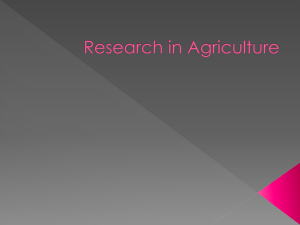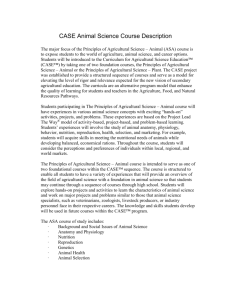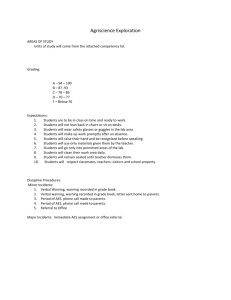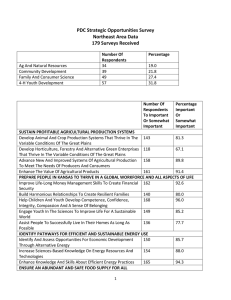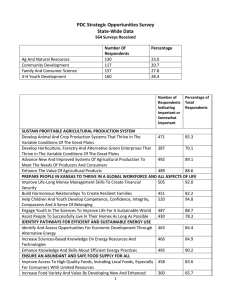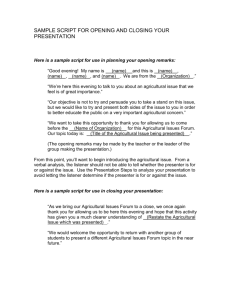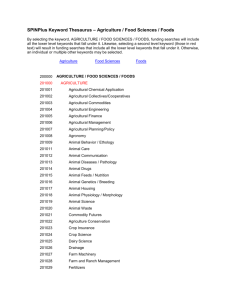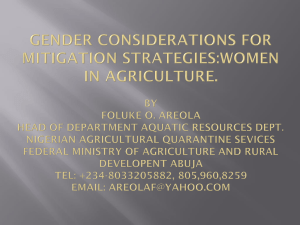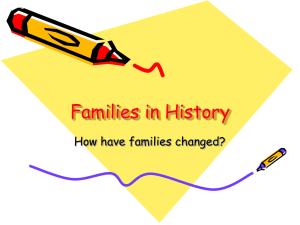Turkey_Erdogan - Global Research Alliance
advertisement
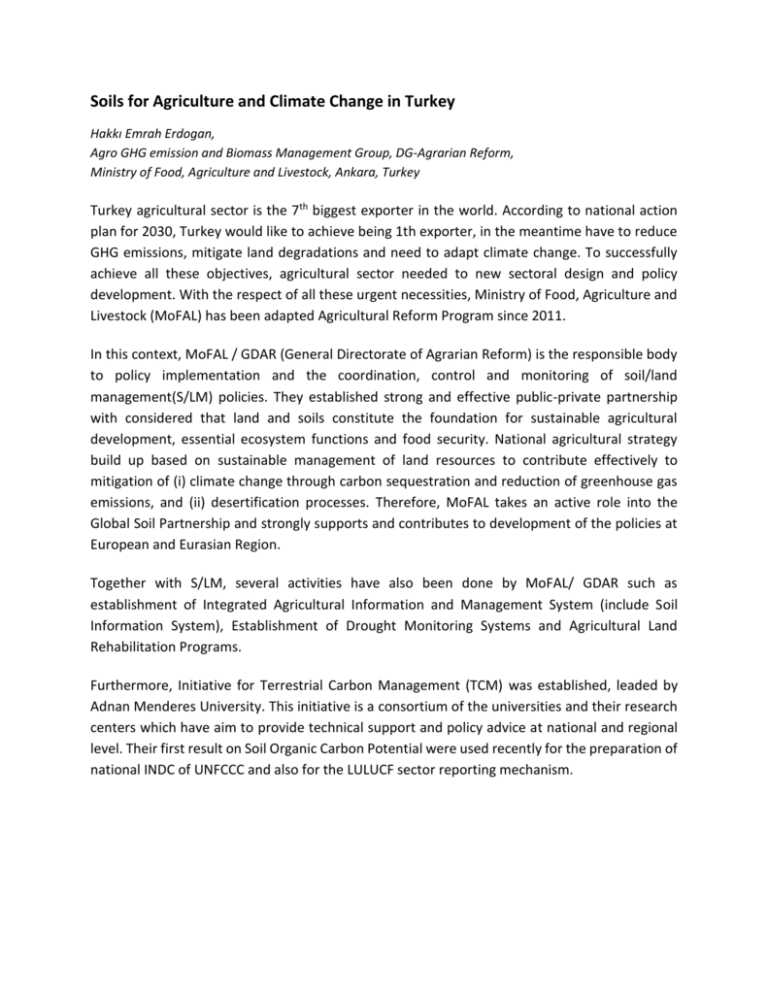
Soils for Agriculture and Climate Change in Turkey Hakkı Emrah Erdogan, Agro GHG emission and Biomass Management Group, DG-Agrarian Reform, Ministry of Food, Agriculture and Livestock, Ankara, Turkey Turkey agricultural sector is the 7th biggest exporter in the world. According to national action plan for 2030, Turkey would like to achieve being 1th exporter, in the meantime have to reduce GHG emissions, mitigate land degradations and need to adapt climate change. To successfully achieve all these objectives, agricultural sector needed to new sectoral design and policy development. With the respect of all these urgent necessities, Ministry of Food, Agriculture and Livestock (MoFAL) has been adapted Agricultural Reform Program since 2011. In this context, MoFAL / GDAR (General Directorate of Agrarian Reform) is the responsible body to policy implementation and the coordination, control and monitoring of soil/land management(S/LM) policies. They established strong and effective public-private partnership with considered that land and soils constitute the foundation for sustainable agricultural development, essential ecosystem functions and food security. National agricultural strategy build up based on sustainable management of land resources to contribute effectively to mitigation of (i) climate change through carbon sequestration and reduction of greenhouse gas emissions, and (ii) desertification processes. Therefore, MoFAL takes an active role into the Global Soil Partnership and strongly supports and contributes to development of the policies at European and Eurasian Region. Together with S/LM, several activities have also been done by MoFAL/ GDAR such as establishment of Integrated Agricultural Information and Management System (include Soil Information System), Establishment of Drought Monitoring Systems and Agricultural Land Rehabilitation Programs. Furthermore, Initiative for Terrestrial Carbon Management (TCM) was established, leaded by Adnan Menderes University. This initiative is a consortium of the universities and their research centers which have aim to provide technical support and policy advice at national and regional level. Their first result on Soil Organic Carbon Potential were used recently for the preparation of national INDC of UNFCCC and also for the LULUCF sector reporting mechanism.

